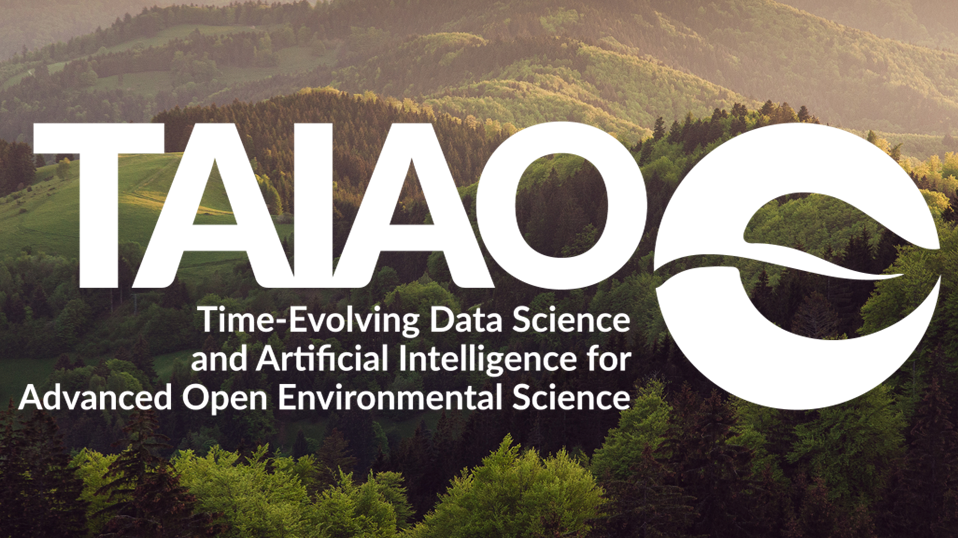News
Welcome to the TAIAO newsletter!

TAIAO, funded by the Ministry of Business, Innovation and Employment (MBIE), is a programme that seeks to support New Zealand researchers and practitioners who are working to preserve our country's unique environment.
Through the newsletter, we will be sharing stories of successful implementation of AI and automation, as well as updates on funding and networking opportunities and upcoming events.
In this newsletter, you will find information on:
- TAIAO as a game changer for Aotearoa New Zealand
- Researchers launch artificial intelligence tool to identify Aotearoa wildlife
- TAIAO project team spotlight
- What's yet to come in 2023
- How to get involved
TAIAO as a game changer for Aotearoa New Zealand
Data is essential to research, understand, set policy for, and manage New Zealand’s environment. However, with vast increases in the volume of data, it can be challenging for researchers and practitioners to keep abreast of trends and innovations.
That’s where TAIAO can make a difference – we use artificial intelligence to support researchers and practitioners working to preserve New Zealand's environment by providing fit-for-purpose tools and methods that make complex environmental datasets easier to understand and analyse.
TAIAO, which means natural resource or environment in Māori, also provides funding opportunities to projects aligned with their goals and an open-source network so researchers and practitioners can share their data, collaborate, and build upon each other’s work.
Through all this work, we hope to make it easier for a diversity of users to use data to understand and preserve New Zealand’s unique environment, including our rivers, lakes, forests, estuaries, and mountains, for the benefit of all New Zealanders.
Researchers launch AI tool to identify Aotearoa wildlife
An AI-powered wildlife identification tool called " Aotearoa Species Classifier" was recently launched by a group of researchers from the University of Waikato and the University of Canterbury, in partnership with the TAIAO programme.
The classifier uses machine learning and computer vision to help users identify plants, animals, and fungi in New Zealand. The app was designed to be user-friendly and is accessible for people of all ages, particularly for nature enthusiasts, students, and researchers.
The launch of Aotearoa Species Classifier is a great example of how TAIAO is helping users apply AI and automation to create innovative and useful products and services.
Read more about the species classifier on our website.
This research was also featured in the following:
TAIAO project team spotlight
Each newsletter we will spotlight some of the hardworking members of TAIAO. From sharing their career journey and achievements, we will give you a bit of insight into the team and how they’ve gotten to where they are now.
For our first edition, meet the TAIAO project leads, Professor Albert Bifet and Professor Karin Bryan.
Professor Albert Bifet
Professor Albert Bifet is a leading expert in the field of Artificial Intelligence, Big Data Science, and Machine Learning for Data Streams.
As a Professor of AI and Director of the Te Ipu o te Mahara AI Institute at the University of Waikato, Albert is at the forefront of cutting-edge research in the field. He also holds the position of Co-chair of the Artificial Intelligence Researchers Association (AIRA).
Professor Karin Bryan
Professor Karin Bryan is an accomplished academic with a wealth of experience in both Earth and Environmental Science and graduate research administration.
On top of her work with TAIAO, Karin is also the Dean of Te Mata Kairangi, the School of Graduate Research at the University of Waikato and a leading professor in Earth and Environmental Science.
The TAIAO team is incredibly lucky to be led by both Albert and Karin, two accomplished and respected experts in their fields. Their leadership, guidance and experience has been instrumental in the success of the programme so far and will continue to be in the future.
What's yet to come in 2023
Last year was busy for the TAIAO programme. We were able to:
- Host the annual TAIAO conference in Auckland, as well as New Zealand's first environmentally focused AI hackathon challenge in partnership with the University of Waikato's Artificial Intelligence Institute and AI Forum;
- Hosted TAIAO workshops;
- Presented at the Artificial Intelligence Researchers Association (AIRA) Annual Conference in Christchurch;
- Created new technology including the species classifier and flooding predictions tool;
- Refreshed our website.
We're looking forward to this year, especially with a couple of events and AI developments on the horizon including:
- The annual TAIAO meeting planned for 24 August at the University of Waikato’s Tauranga campus. It will be a chance to catch up with environmental data scientists, make new connections and reinvigorate old ones. More information on this workshop will be provided closer to the event.
- The development of an artificial intelligence (AI) tool, capable of predicting the impact of future flooding events in the Coromandel region.
For more information on the above events and research work, head to our website.
How to get involved
TAIAO provides an open source community platform for Environmental Data Science and AI. In the platform, you can discuss the notebooks and datasets found on TAIAO and get to know other contributors. Click here to sign up.
